By: M. Swift
Roughly 121 years last week, wild outlaw Cherokee Bill met Old West justice at the age of 20. He was such a problem for law enforcement that his run as an outlaw ended in just over two years.
Before Cherokee Bill
The son of mixed Buffalo Soldier Sgt. George Goldsby and a Cherokee freedman Ellen Beck, he was born February 8, 1876, as Crawford Goldsby in San Angelo, Texas. George Goldsby also served in the Confederate army before fleeing Gettysburg. Passing, he was able to enlist as a White man as “George Goosby” with the Union’s 21st Pennsylvania Cavalry Regiment.
Following the Civil War George headed to Illinois and found out that he would be lynched for joining the Union. This prompted him to leave and head into what was then Indian Territory (mostly Oklahoma). In 1867, he signed on with the Buffalo Soldiers.
As the decade closed out, he was in a feud between the Buffalo Soldiers and Texas area cowboys in San Angelo. In one situation, there was a shootout between the two groups. Goldsby became the target of a hunt by the Texas Rangers as it was believed he armed the Soldiers.
While an upstanding officer, George knew that the U.S Army couldn’t protect him from the tenacious Texas Rangers and headed into Indian Territory. Young Crawford’s mother took the family elsewhere into Indian Territory, but he was left with a family friend.
At 12 he reunited with his mother to find that she had remarried. It’s said that he didn’t get along with his stepfather, a K Troop private. Three years later he moved in with his sister but didn’t get along with her husband.
A Bad Start
At 18 Goldsby had a row with a Fort Gibson local which resulted in Goldsby shooting the man. Even though the man lived, Goldsby went on the run and disappeared among the Creek and Seminole Nations. Here he joined the Cooks, a tandem of mixed Cherokee outlaws. Later that year, while intending to collect $265 from the U.S government for its purchase of Cherokee land, there was a run-in with the law.
Sheriff Ellis Rattling Gourd was hunting Goldsby and the Cooks but ended up in a gunfight. Deputy Sequoyah Houston was killed prompting a retreat. An associate of the trio, Effie Crittenden (who was supposed to get the trio’s money as they were wanted), was asked about Goldsby. She didn’t name him but said that a “Cherokee Bill” was involved in the shootout, giving the notorious outlaw his name.
The Cook Gang
The trio formed the Cook Gang following the shootout and engaged in a series of robberies between August and October 1894. Stores, stagecoaches, banks, and individuals were all hit by the Cook Gang. Those who didn’t hand over their money or goods were often shot and killed by Cherokee Bill and the Cooks. The outlaw even shot and killed his won brother-in-law that September over an inheritance.
Most of the Cook Gang’s crimes took place in Oklahoma with his largest haul being $500 at the end of July. There was a $1,300 bounty on Cherokee Bill’s head. The Cook Gang split up but were ultimately arrested or killed while Bill remained on the run. Instead of fleeing into Texas or anywhere but Oklahoma, he remained in the area. Eventually, he was captured in late January 1895 having been set up by an acquaintance.
An Outlaw’s End
Following a particularly short wait and an even shorter trial, Cherokee Bill was sentence to hang in April 1895. His lawyer managed to get his execution date delayed. In July he attempted to escape Fort Smith, killing a guard along the way. He was subdued by fellow outlaw and prisoner Henry Starr, best known as a relative of notorious outlaw Belle Starr, someone with incredible luck to avoid hanging, and the first western outlaw to use a car to get away.
Hanging judge Isaac Parker marked Cherokee Bill for a September 1895 meeting with the gallows. This was moved to March 1896 at 11AM. The execution was delayed until 2PM so that his sister could see him before his death.
A year later Cherokee Bill’s brother and outlaw Clarence Goldsby gunned down Ike Rogers, the man believed to have lured Bill for law enforcement at Ft. Gibson.
More Black West
George F. Monroe, Pony Express Rider
“Stagecoach” Mary Fields, Mail Carrier
M. Swift primarily writes on moments and important figures in Black history for Your Black World. He also writes heavily on wrestling, comics, gaming, and Black sci-fi and fantasy.

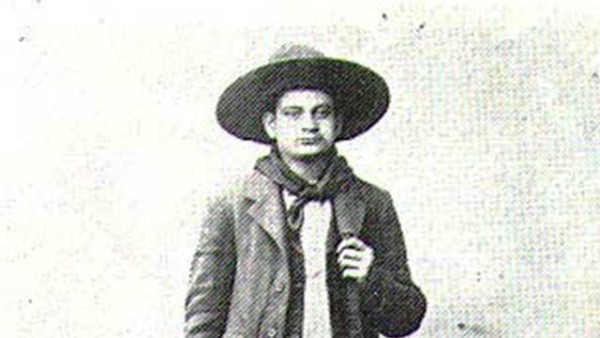



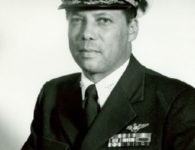
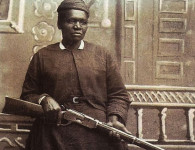


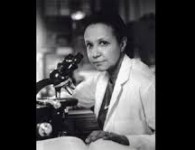

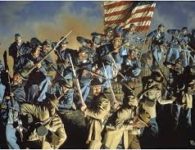


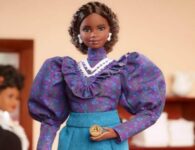


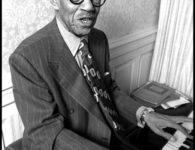
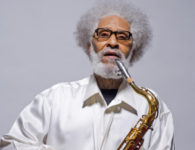


1 Comment
Good post. Thanks.